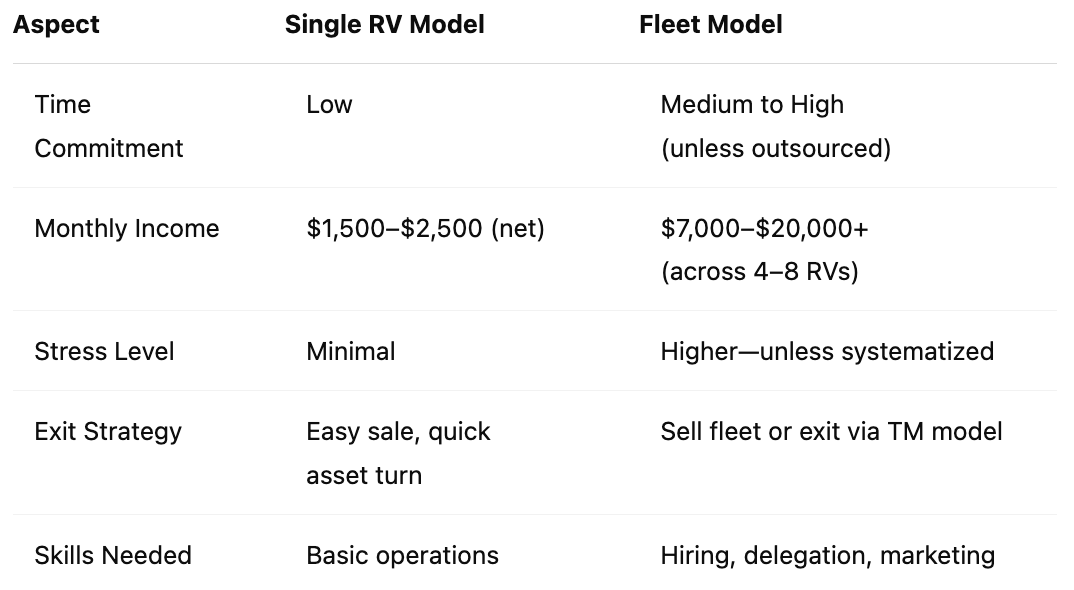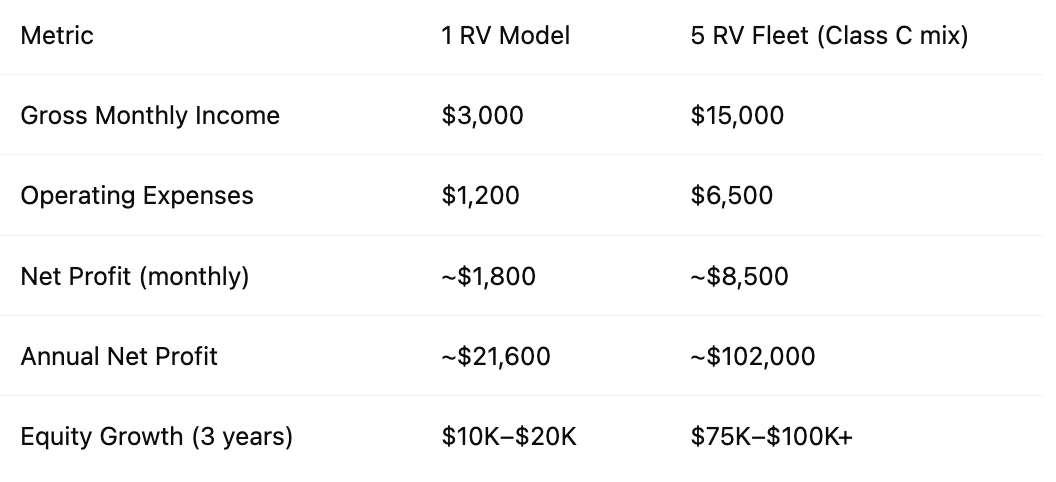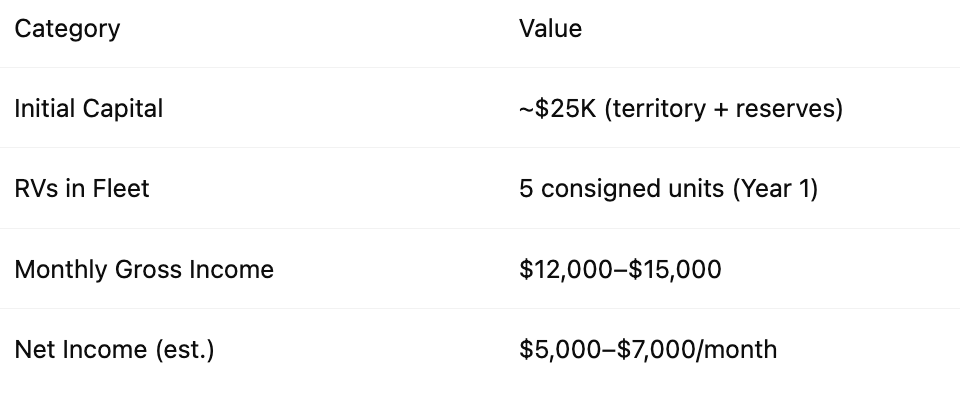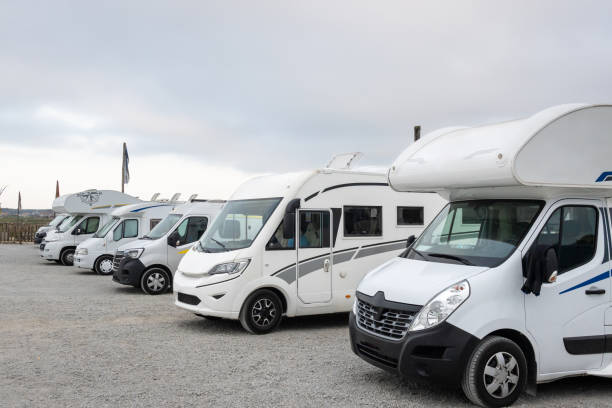For RV owners testing the waters with a successful first unit, the next step can feel like a fork in the road: go all in and build a fleet—or keep things simple with one high-performing RV?
Both paths have their merits. One offers scale and long-term wealth-building. The other offers minimal stress and steady income. The right decision depends on your goals, time commitment, and appetite for risk.
This article breaks down the pros and cons of each approach so you can make the right call for your situation—and your future.
Table of Contents
- Fleet Ownership vs. Solo RV: What’s the Difference in Strategy?
- The Case for Sticking with One RV
- The Case for Building a Fleet
- Financial Models: One RV vs. Five
- How to Scale Without Losing Your Freedom
- How RVM Makes Fleet Ownership Easy and Profitable
- Final Thoughts: Choose the Business That Fits You
1. Fleet Ownership vs. Solo RV: What’s the Difference in Strategy?

Owning a single RV rental is about simplicity, lifestyle, and modest passive income. Owning a fleet is about systems, leverage, and building long-term cash flow.

Your strategy isn’t just about profit—it’s about lifestyle and growth alignment.
2. The Case for Sticking with One RV
Not everyone wants to build an empire. Sticking with one RV can be the right move if you:
- Want a side hustle, not a second job
- Enjoy handling guests and operations yourself
- Use the RV personally for travel or leisure
- Don’t want to take on financing or operational complexity
This model works especially well if you live in a high-demand location, have excellent guest communication skills, and value simplicity over scale.
Pros:
- Higher margin per unit
- Minimal overhead
- Lower time requirement
- Easier to manage taxes and compliance
Cons:
- Income capped to one unit
- Not diversified
- More susceptible to seasonality
3. The Case for Building a Fleet

Building a fleet is about leveraging your systems and maximizing earning potential. The moment your processes are dialed in, every new RV adds exponential ROI.
Fleet ownership is best for those who:
- Have experience running the first unit smoothly
- Want to reinvest income to grow
- Aim for $10K+/month in net rental income
- Have systems or partnerships (like RVM) to support growth
Benefits of scaling:
- Revenue and equity grow simultaneously
- Lower risk of seasonality or unit downtime
- You can outsource operations while still earning margin
Challenges:
- More moving parts (repairs, guests, turnovers)
- Capital or financing requirements
- Requires discipline and structure
But done right? It becomes a cash-flowing business with real resale value.
4. Financial Models: One RV vs. Five

Assumes units financed with ~$1,200/month payments and ~60% occupancy. Income varies based on market, quality, and seasonality.
As you can see, a well-managed fleet scales exponentially faster than a single unit.
5. How to Scale Without Losing Your Freedom

Many owners hesitate to scale because they fear becoming overwhelmed. That’s valid—unless you build systems or delegate from day one:
- Hire a cleaner after RV #1
- Create automated messaging and SOPs
- Use a centralized platform (like Wheelbase)
- Outsource delivery or walkthroughs
Even better—partner with a management solution like RVM that allows you to own the fleet but not run it.
6. How RVM Makes Fleet Ownership Easy and Profitable
RVM exists to solve this exact problem: how to help RV owners build a passive, scalable rental business without doing it all themselves.
Here’s how RVM supports fleet investors:
- We help you acquire RVs that fit demand and booking performance
- We provide backend software and automation to simplify operations
- We offer territory-based models where you bring capital, and we bring consigned units
- We help match you with Territory Managers who handle guest comms, cleaning, and delivery
Fleet ROI Example with RVM (5 Units, Territory Model)

The result? You own the fleet, benefit from the cash flow, and don’t touch a cleaning rag or answer late-night texts.
This model is perfect for:
- Investors looking for passive yield
- Busy professionals with capital but no time
- RV owners ready to scale but not manage
7. Final Thoughts: Choose the Business That Fits You
There’s no right answer for everyone.
If you value freedom, simplicity, and lifestyle balance—sticking with one RV may be the path.
If you’re growth-minded, see the ROI potential, and want to turn your knowledge into a business—a fleet is your next step.
Whatever path you choose, RVM can help you get there. We support solo owners looking for optimization and seasoned operators ready to scale into 5–50 units.
Let’s turn your RV into a revenue stream—and your ambition into a real business.
– RVM Team

